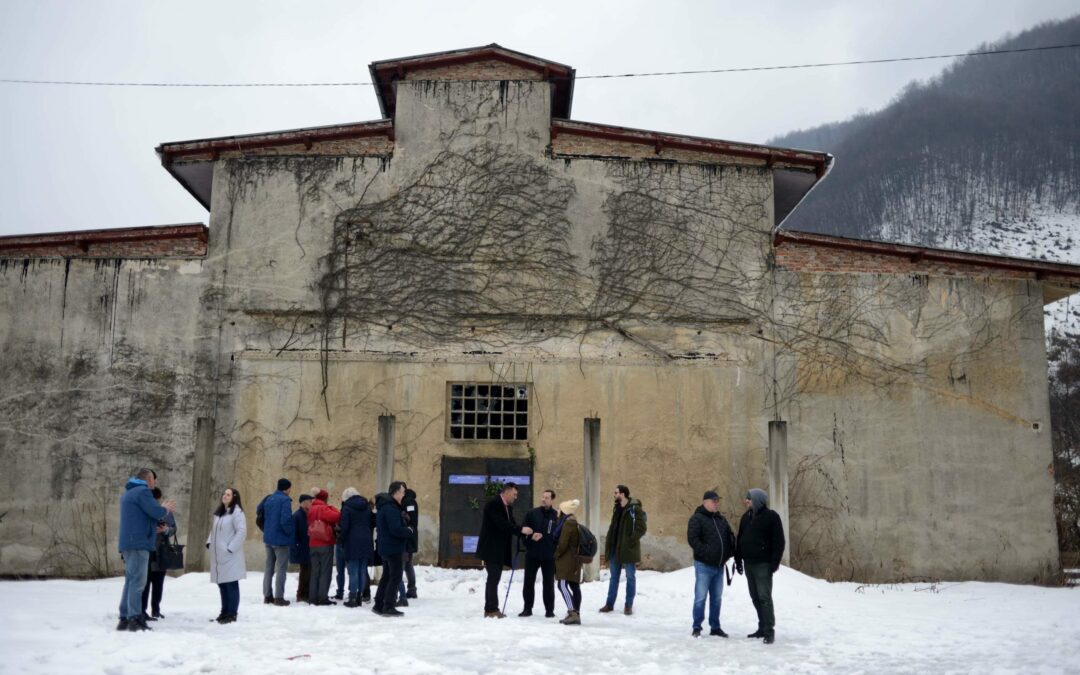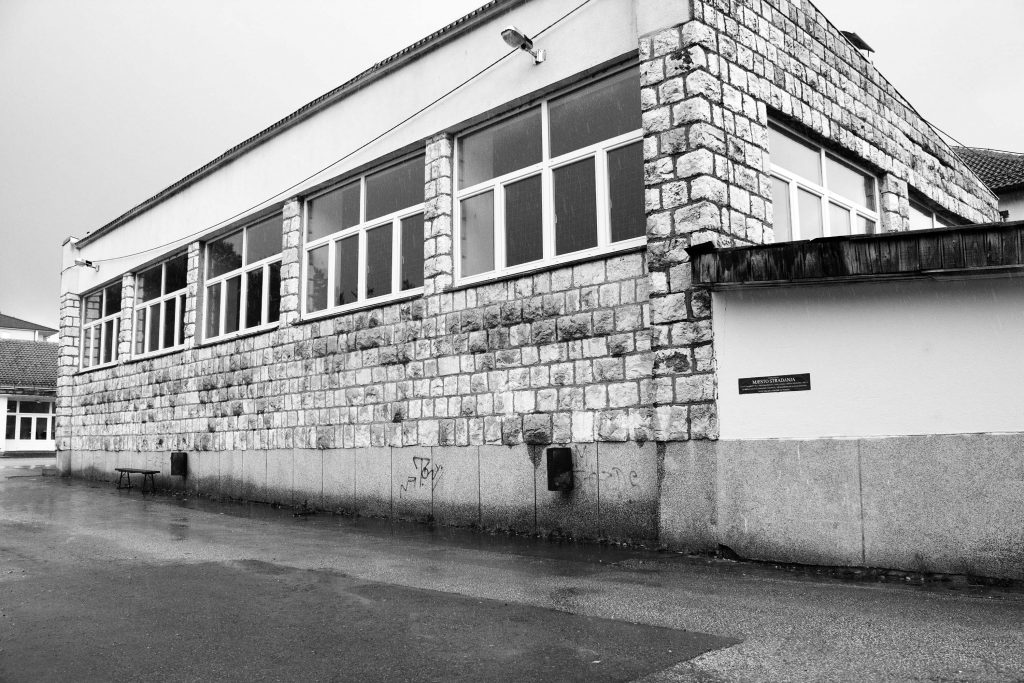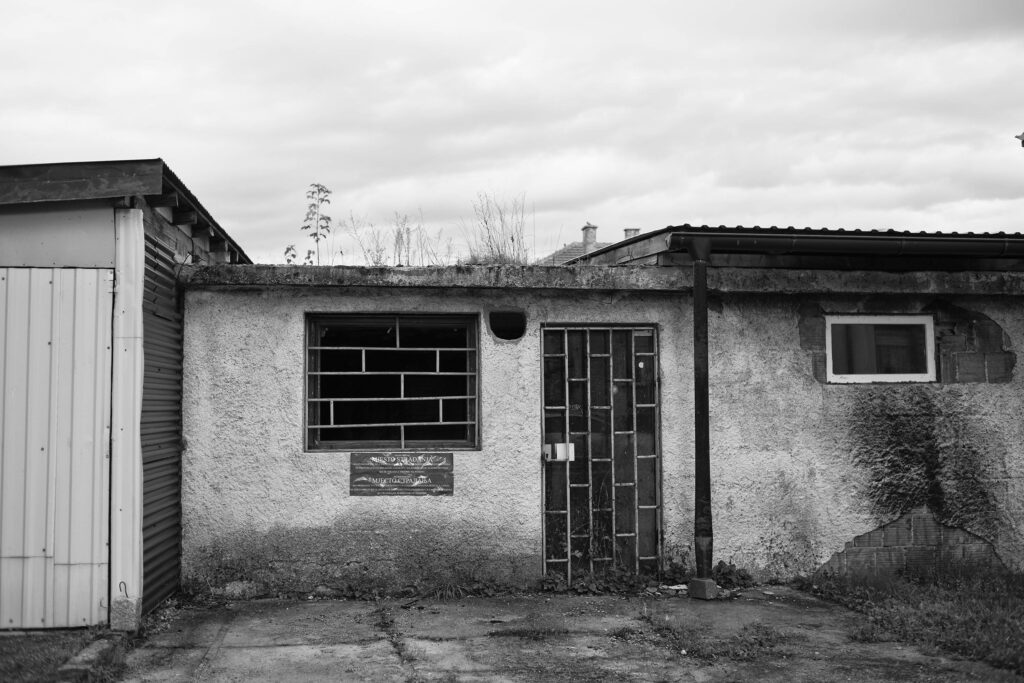In the first days of 2025, the Prosecutor’s Office of Bosnia and Herzegovina raised a series of indictments against individuals accused of war crimes committed in the area of Livno, Žepče and Hrasnica.
In raising awareness about unmarked sites of suffering from the past war, an effort to make them visible in public space and not let them be forgotten, news like this is important because the process to determine responsibility for the crimes has not yet been completed. We are particularly cognisant of widespread denial of crimes, exclusive self-victimisation and the glorification of convicted war criminals.
Even though it has been thirty years since the war, local communities in BiH have not developed a conducive attitude towards the past that would include respect for the suffering of victims and the pain of their families and friends. Approvals are withheld for erecting monuments and on days when suffering is supposed to be commemorated, access to sites of detention and execution is often made impossible.
Under such conditions, the Initiative to Mark Unmarked Sites of Suffering has pointed to more than 150 sites across BiH, and as of recently also several in Croatia, in an effort to contribute to a culture of memory that will respect all victims, recognise their suffering and be an investment in building a better society.
Respecting the presumption of innocence and given that these cases are yet to be adjudicated, what we have been trying to bring to the forefront for the past decade is that the sites we mark were unquestionably sites of suffering where human life and dignity were denigrated and that the path to healing our society means recognising, respecting and having empathy for all victims.
We sought to be allies of survivors and members of their families. We often saw how important it was for them to have their suffering and pain recognised and respected. Trials are an important step in this direction, but today, 30 years after the war, it is clear they cannot be the only step.
We have witnessed countless encounters that show how victims have no reservations in expressing support for each other, calling for the prosecution of all those responsible for crimes, whatever side they may come from, and we have seen their readiness to jointly visit sites of suffering and pay their respects to all victims.
These are important steps on the long road to building the trust needed for a peaceful, stable and prosperous society.
Livno
The state-level Prosecutor’s Office has raised an indictment against Muhamed Ibrahimović known as Hamčo for crimes committed in 1992 against the Serb civilian population in the Livno area.
He is charged as the commander of the Croatian Defence Council (HVO) Military Police in Livno for crimes committed on the premises of the Ivan Goran Kovačić Primary School that was used as a detention facility for Serb civilians. He stands accused of crimes committed together with other members of HVO, including torture, abuse, beatings and other inhumane treatment of the detained civilians, which resulted in the deaths of three civilians and has had lasting effects on the physical and mental health of the prisoners. We had marked this facility on 20 October 2016.
Žepče
Luka Babić, Alojz Vrbić known as Vrba, Marinko Martić known as Žilo, Franjo Jozić, Viktor Markanović known as Karika, Slavko Spajić known as Spaja, and Ivo Mrkonjić known as Cvaka, who in 1993 and 1994 acted as members of the Croatian Defence Council (HVO) MIlitary Police and regular police in Žepče, have been charged by the Prosecutor’s Office of BiH with war crimes against dozens of Bosniak civilians who were illegally detained in improvised prison facilities and were subjected to torture, abuse, beatings and other inhumane treatment, as a result of which several of them died. They are also indicted for taking the prisoners out to perform forced labour in the active war zone where several people were killed and several more were wounded and subsequently not given adequate medical care, and for rape.
One of these prison facilities was the Silo that we marked on 6 February 2021.
We also visited this site on 4 March 2023 with a group of prison camp survivors, peace activists, reporters and war veterans organised by the Centre for Nonviolent Action as a joint visit to mark four silos as former detention facilities and the “Iron Bridge” in Doboj as a site of execution of captured civilians.
Hrasnica
The Prosecutor’s Office of BiH has raised an indictment against ten individuals for war crimes against the civilian population and prisoners of war in the settlement of Hrasnica near Ilidža.
The indictment was raised against Enes Zukanović, Fikret Prevljak, Emir Redžović, Vahid, Alađuz, Rasim Okerić, Mustafa Gegaj, Mujo Vatreš, Vahid Muharemović, Mirsad Tuzlak and Senahid Godinjak, who as commanders and members of the Army of RBiH stand accused of war crimes against Serbs from the Hrasnica, Butmir and Sokolović-Kolonija settlements.
They are charged with crimes against about a hundred Serb civilians, including women, the elderly and minors, who were illegally detained in camps and detention facilities in Hrasnica, as well as of crimes committed against Serb prisoners who were taken to perform forced labour in the active war zone where they were exposed to being wounded and killed, or were killed by their guards. We had marked sites in Hrasnica on 28 October 2023.
Although the indictments have been raised almost three decades after the end of the war, too late for many survivors, they are an indication that war crimes have no statutory limitation and that the final outcome of these cases will give a clearer picture of the pain and suffering people went through and provide at least a modicum of just satisfaction in that the crimes will not go unpunished.




